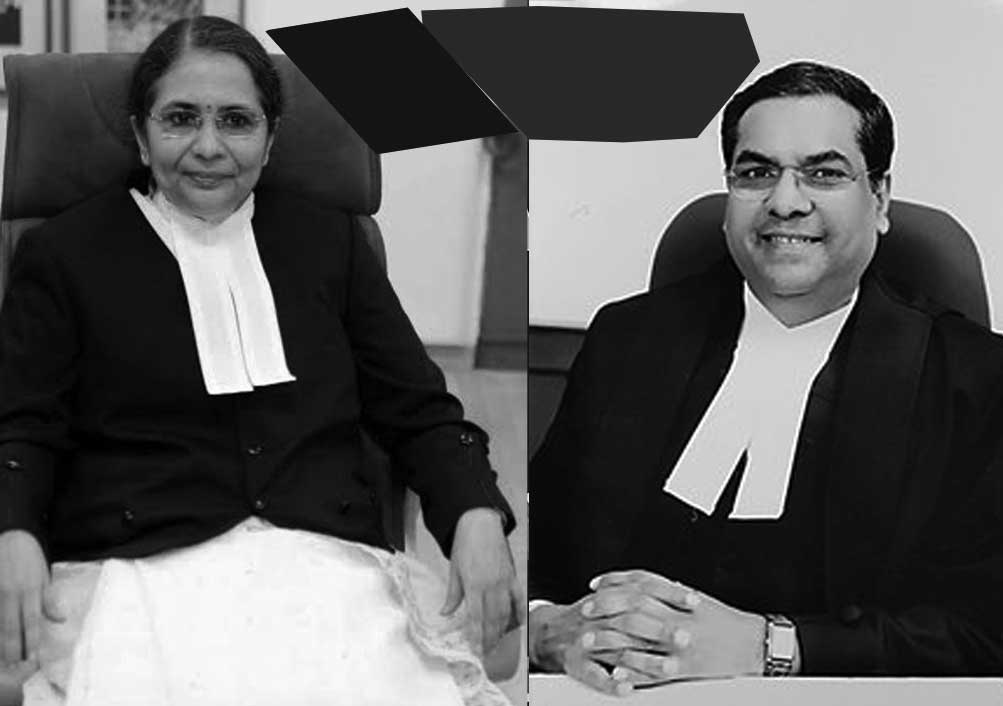In SPECIAL LEAVE PETITION (C) NO. 27794 OF 2016-SC- Apex Court Bench expresses distinct opinions on whether plaint should be entertained or not in case limitation period has been exhausted Justices Sanjiv Khanna & Bela M Trivedi[28-03-2022]

Read Order: SARANPAL KAUR ANAND v. PRADUMAN SINGH CHANDHOK AND OTHERS
Mansimran Kaur
New Delhi, April 1, 2021: A bench of the Supreme Court recently dealt with an appeal wherein the judges pronounced their respective observations. Justice Sanjiv Khanna and Justice Bela M Trivedi basically lacked consensus – ad idem (meeting of minds) in the matter of rejection of the present appeal under Order VII Rule 11 (d) of the Code of Civil Procedure as the same is barred by time.
A civil suit was instituted by the plaintiff Saranpal Kaur Anand in 2012 with the objective of declaring a sale deed as “sham, illegal, and null and void”.
The proposition of law that was to be decided was “Whether the suit as framed is liable to be rejected under Order VII Rule 11 (d) of the CPC on the ground of limitation”?
By the order of 6 April, 2015, the Single Judge decided the preliminary issue by observing that the suit is barred by time and hence the plaint stands to be rejected. The applications for amendment filed by the plaintiff were also dismissed on the ground of being malafide and not maintainable.
Thereafter the High Court Bench via its order dated 25th April dismissed the appeal preferred by the plaintiff and upheld the order of rejection on the ground that it was filed beyond the period of limitation.
Aggrieved by the same the plaintiff approached the Apex Court as the appellant.
The plaintiff/ appellant produced Section 17 of the Limitation Act, which states that in case of fraud, the limitation period will commence only after the fraud comes to the knowledge of the plaintiff/appellant and therefore contended the plaint is not barred by time.
Justice Khanna was of the view that the plaintiff/appellant had prior knowledge pertaining to the sale deed of 1969 even before 2008. It was further noted that as per the law of pleadings, the plaintiff has to make specific averments concerning fraud with particulars relating to dates.
In the words of Justice Khanna, “It is apparent that the plaintiff was aware and had knowledge in October 2008 about execution and transfer of ownership rights in favor of late Tej Kaur vide sale deed dated 23rd August, 1969 executed by defendant No. 3, Gurdev Singh Anand. Unadorned assertion in the plaint feigning ignorance as to the sale deed would not help, as in the facts as pleaded and accepted in the plaint, the plaintiff was required to state and indicate that ignorance was not due to failure to exercise reasonable diligence”.
On the contrary Justice Trivedi remarked that the application of Section 17 in the present case is a mixed question of law and facts. Referring to plethora of pronouncements, Justice Trivedi observed that “whether a suit is barred by any law or not must be determined from the statements made in the plaint and it is not open to decide the issue on the basis of any other material including the written statement filed in the case”.
Therefore Justice Trivedi ordered for the restoration of the suit after setting aside the impugned judgments.
However Justice Khanna upheld the observations made by the lower courts stating that the present appeal is liable to be rejected under Order VII Rule 11(d) of CPC.
Since the Bench had different findings and made different observations, the matter was referred to the Hon’ble Chief Justice in order to reach to a conclusion.
Sign up for our weekly newsletter to stay up to date on our product, events featured blog, special offer and all of the exciting things that take place here at Legitquest.




Add a Comment